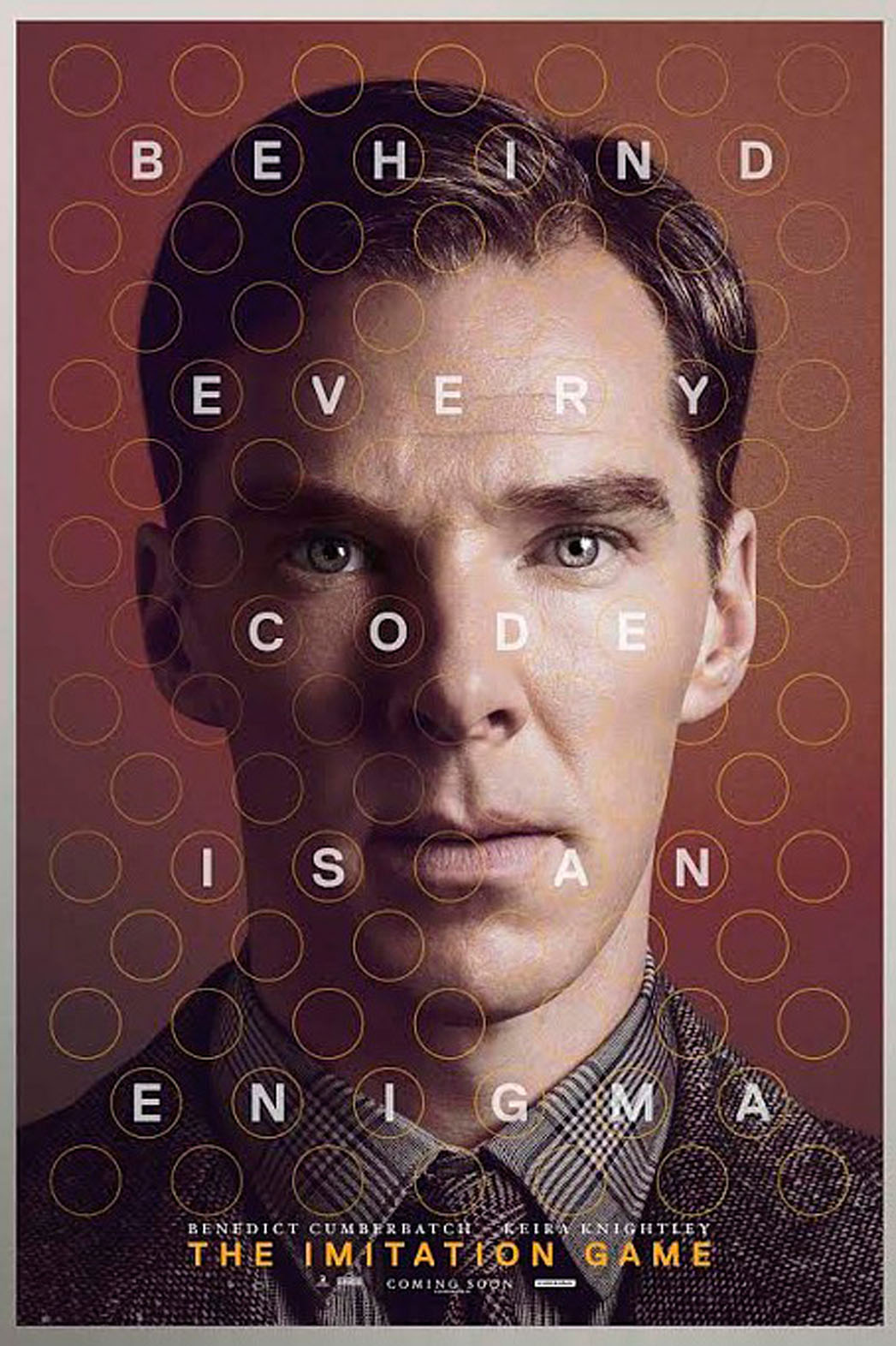This film was sure to sell, if only for Benedict's Cumber
 |
| Would I be forgiven in saying that that's quite "cryptic"? I'll see myself out. |
Flashing between codebreaking in 1940, a childhood in 1923 and an interrogation in 1951, The Imitation Game plays around as much with plot and order as much as it doesn't with much else. There's nothing groundbreaking about this film, no grandiose new schemes or devices or allegory; it's quite stereotypical, but that doesn't take from it. The Imitation Game charts Turing's difficult life, explaining the problems of codebreaking and the magnanimous task of defeating Enigma. It's well written, well acted, and well filmed. If not for a few hiccups, this might be a five star review. But.
While Cumberbatch and Knightly were both skillful, we didn't expect any less from them. There were several good performances from secondary characters, including Charles Dance and Rory Kinnear, but many more were...forgettable. But there are many worse films out right now, and to have so many good major characters isn't necessarily something to be scoffed at, though the others were somewhat lacklustre. And I'd be lying if I said I didn't enjoy it. It was a bit...watered-down, feeling like an episode of Downton Abbey, and earlier this year the film garnered controversy for supposedly down-playing Turing's homosexuality, and over-emphasizing his friendship and sham engagement with Joan Clark.
 |
| Oooh...look at those dials. |
And that's something we have to draw attention to, though; why? Why downplay that? It was how Turing was--it's how many people choose to live their lives--and there's nothing wrong with that. But, I suppose, if more people aren't turned off by the "gayness" (I know some of my more...conservative friends were hesitant to watch because of that. Idiots.) then that means that more people will see the film, and more people will know the truth about Turing. But still. Rather than censorship, I like to think that this was done because, like Turing said, it really didn't matter--who cares what we do and don't like. The man invented the computer.
Overall, it was a good film, and I was able to geek-out sufficiently with my useless(?) trivia on Turing and cryptography, because that's the sort of exciting person I am. But it was genuinely moving, and made for both a good historical thriller, a good mystery and a good drama. My only qualms came in the form of forgettable secondary characters, and a downplaying of who Turing really was.
4/5
No comments:
Post a Comment